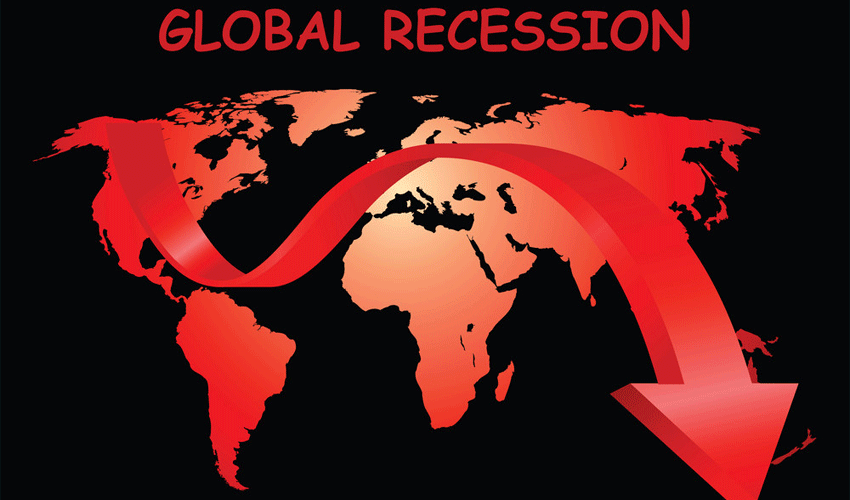J.P. Morgan has raised its forecast for the global recession risk to 60%, citing the ongoing escalation of the US-China trade war, which is straining business confidence and threatening to slow down global economic growth.
The investment giant's updated forecast marks a significant increase from the previous 40%, as the latest round of tariffs imposed by the Trump administration exacerbates concerns about an imminent economic slowdown.
This sharp revision comes after President Trump’s decision to impose tariffs on numerous countries earlier this week, with China retaliating by slapping its own levies on US goods. The trade spat has raised alarms globally, with market reactions pointing to a more pronounced slowdown in growth.
In its latest report, JP Morgan highlighted that disruptive US trade policies have emerged as one of the biggest risks to the global economy this year. The firm warned that these policies, combined with retaliatory tariffs and falling business sentiment in the US, could severely disrupt global supply chains and further dampen investor confidence.
“Disruptive US policies have been recognised as the biggest risk to the global outlook all year,” the investment bank stated. “The effect is likely to be magnified through tariff retaliation, a slide in US business sentiment, and widespread supply-chain disruptions.”
S&P Global has also revised its recession probability for the US, now estimating a 30-35% chance of a recession, up from 25% in March.
A similar sentiment was echoed by Goldman Sachs, which raised its forecast to 35% from 20% last week, warning that the economic fundamentals of the US economy were weakening compared to previous years.
Meanwhile, HSBC noted that the recession narrative was gaining momentum, although some of the risks had already been priced into the markets. "Our equity market-implied recession probability indicator suggests equities are already pricing in a 40% chance of a recession by the end of the year," analysts from HSBC observed.
The ripple effect of these economic forecasts has been seen in the equity markets, with the S&P 500 index plunging more than 8% since the beginning of the year following Trump’s tariff announcements in January.
Other major brokerages, including Barclays, BofA Global Research, and Deutsche Bank, have followed suit in adjusting their predictions, with many warning that if the tariffs persist, the US economy could enter a period of contraction.
Barclays and UBS have warned that the US economy could slip into contraction territory, while analysts at Capital Economics and RBC Capital Markets have projected a meager 0.1% to 1% growth rate for the year. Capital Economics has notably revised its year-end target for the S&P 500 to 5,500, the most pessimistic outlook among major brokerages, followed closely by RBC’s target of 5,550.
Despite the grim outlook, US equity markets experienced a brief rally in November, following Trump’s victory in securing a second term in office, with hopes for business-friendly policies driving investor optimism.
However, the recent tariff moves have clouded these positive expectations, leading to a reevaluation of market strategies.


























